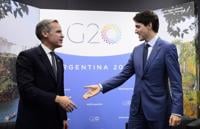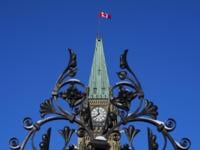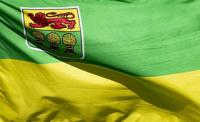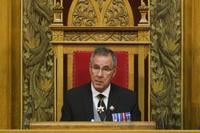OTTAWA - Countries around the world whose currencies pay tribute to the late Queen Elizabeth II now have a new monarch — and a decision to make about whether the King has a place on their money.
Since the queen's death in September, Canada has stayed mum on whether or not it intends to put the King's likeness on its coins and bills.
But other members of the Commonwealth have moved more quickly towards enshrining his visage on their cash — or instead moving away from any kind of royal tribute.
Unsurprisingly, the United Kingdom was the first country to move forward with new banknotes that will feature King Charles, unveiling the designs in December.
The Bank of England says the new banknotes will come into circulation in mid-2024.
The Reserve Bank of New Zealand also said after the queen's death that it would be preparing to change out the image it uses on coins for one approved by the new King. It said the transition would take several years.
Australia went in the other direction, deciding not to place King Charles on its new five-dollar bill. Its central bank announced in February that the country was opting for an Indigenous design instead.
But the King is still expected to appear on Australian coins that currently bear the image of Queen Elizabeth.
The decision to include the portrait of King Charles on banknotes and coins is largely symbolic.
But even symbolic details can reflect the relationship between a country and the monarchy, as well as the level of public support for the institution.
"Different countries are going to approach it differently, depending on the level of attachment to the monarchy and the strength of the republican movement in each country," said Jonathan Malloy, a political science professor at Carleton University, referring to campaigns that seek to separate countries from their relationships with the Crown.
In the Caribbean, many countries have been contending with conversations on what role the monarchy should play. Barbados, for example, ditched the British monarch as its head of state in 2021.
Other Caribbean nations that still belong to the Commonwealth have said little about whether King Charles will be depicted on their banknotes and coins.
However, the Antigua Observer reported earlier this year that the governor of the Eastern Caribbean Central Bank, Timothy NJ Antoine, said there may be "no appetite" for that.
In Canada, the federal government has not disclosed whether it plans to move ahead with placing the monarch on Canadian currency, appearing to avoid the conversation altogether.
A spokeswoman for Finance Minister Chrystia Freeland would only say that "additional details will be forthcoming."
Malloy said that's not surprising, noting there appears to be a partisan divide when it comes to the monarchy's role in the country.
He said the Liberal government may be hesitant to discuss the future of Canadian currency and the monarch because its overall stance on the monarchy has been murky. Meanwhile, the Conservatives have traditionally stood more boldly with the Royal Family.
"I don't think Prime Minister Trudeau wants to get rid of the monarchy, but he also doesn't want to call attention to it," he said.
"Whereas the Conservatives, I'm sure, would put (King) Charles on the money."
The Royal Canadian Mint and Bank of Canada are waiting for the federal government to make a decision regarding the future of coins and banknotes.
"As always, the minister of finance is responsible for approving the form and material of any new banknote, including the portrait subject, in accordance with the Bank of Canada Act," Bank of Canada spokeswoman Amélie Ferron-Craig said in an email.
"As such, it would be up to the government to announce if the King’s portrait is going to appear on any banknote."
According to the Royal Canadian Mint, Canada has included a likeness of the reigning monarch on its coins since it started production in 1908.
This report by Ďă¸ŰÁůşĎ˛ĘąŇĹĆ×ĘÁĎ was first published May 3, 2023.
— With files from The Associated Press.








































